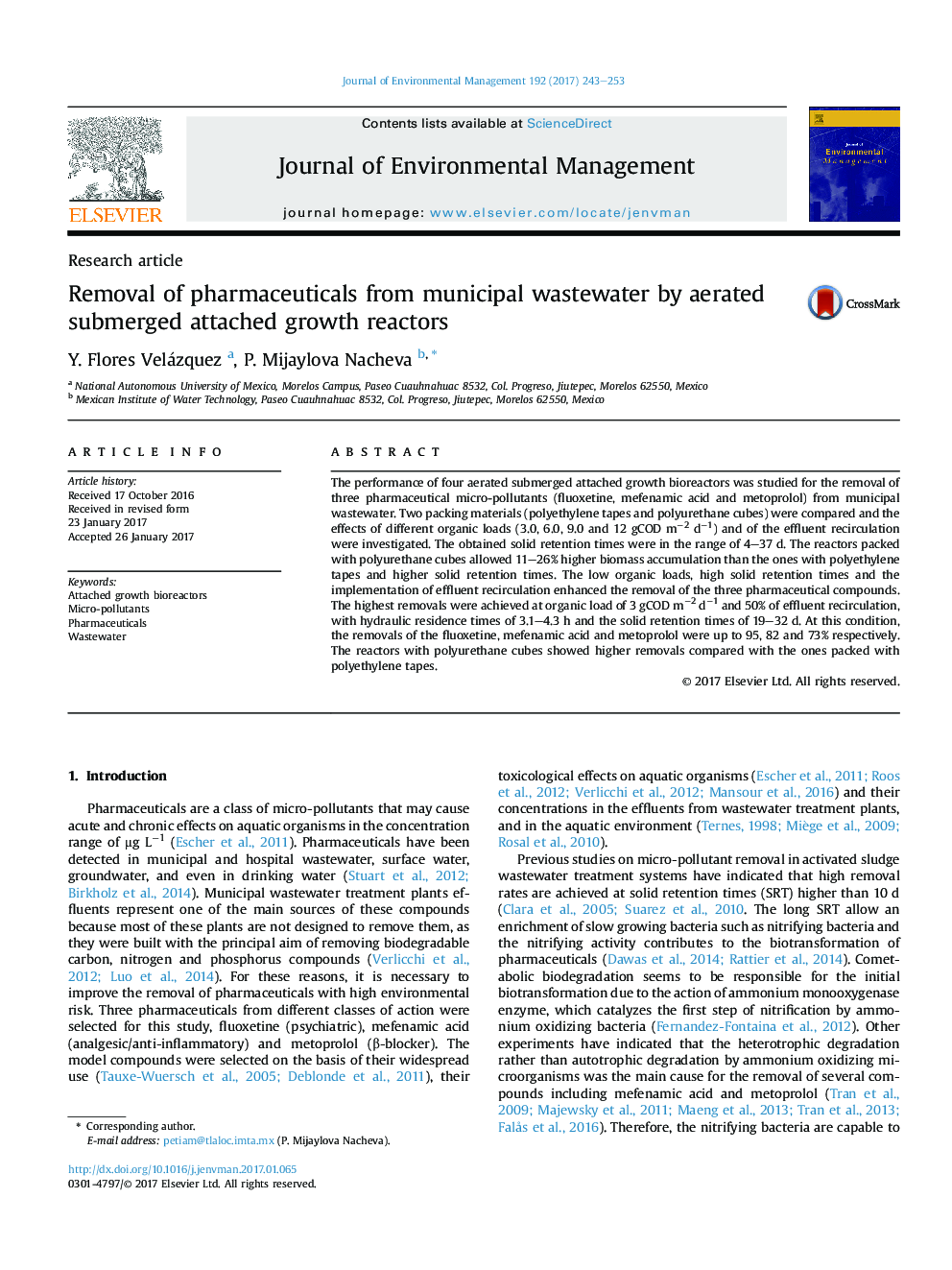| Article ID | Journal | Published Year | Pages | File Type |
|---|---|---|---|---|
| 5117048 | Journal of Environmental Management | 2017 | 11 Pages |
Abstract
The performance of four aerated submerged attached growth bioreactors was studied for the removal of three pharmaceutical micro-pollutants (fluoxetine, mefenamic acid and metoprolol) from municipal wastewater. Two packing materials (polyethylene tapes and polyurethane cubes) were compared and the effects of different organic loads (3.0, 6.0, 9.0 and 12 gCOD mâ2Â dâ1) and of the effluent recirculation were investigated. The obtained solid retention times were in the range of 4-37Â d. The reactors packed with polyurethane cubes allowed 11-26% higher biomass accumulation than the ones with polyethylene tapes and higher solid retention times. The low organic loads, high solid retention times and the implementation of effluent recirculation enhanced the removal of the three pharmaceutical compounds. The highest removals were achieved at organic load of 3 gCODÂ mâ2Â dâ1 and 50% of effluent recirculation, with hydraulic residence times of 3.1-4.3Â h and the solid retention times of 19-32Â d. At this condition, the removals of the fluoxetine, mefenamic acid and metoprolol were up to 95, 82 and 73% respectively. The reactors with polyurethane cubes showed higher removals compared with the ones packed with polyethylene tapes.
Related Topics
Physical Sciences and Engineering
Energy
Renewable Energy, Sustainability and the Environment
Authors
Y. Flores Velázquez, P. Mijaylova Nacheva,
